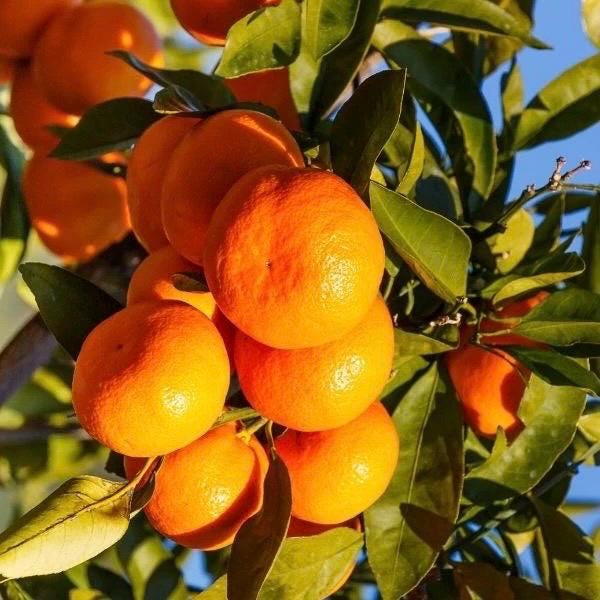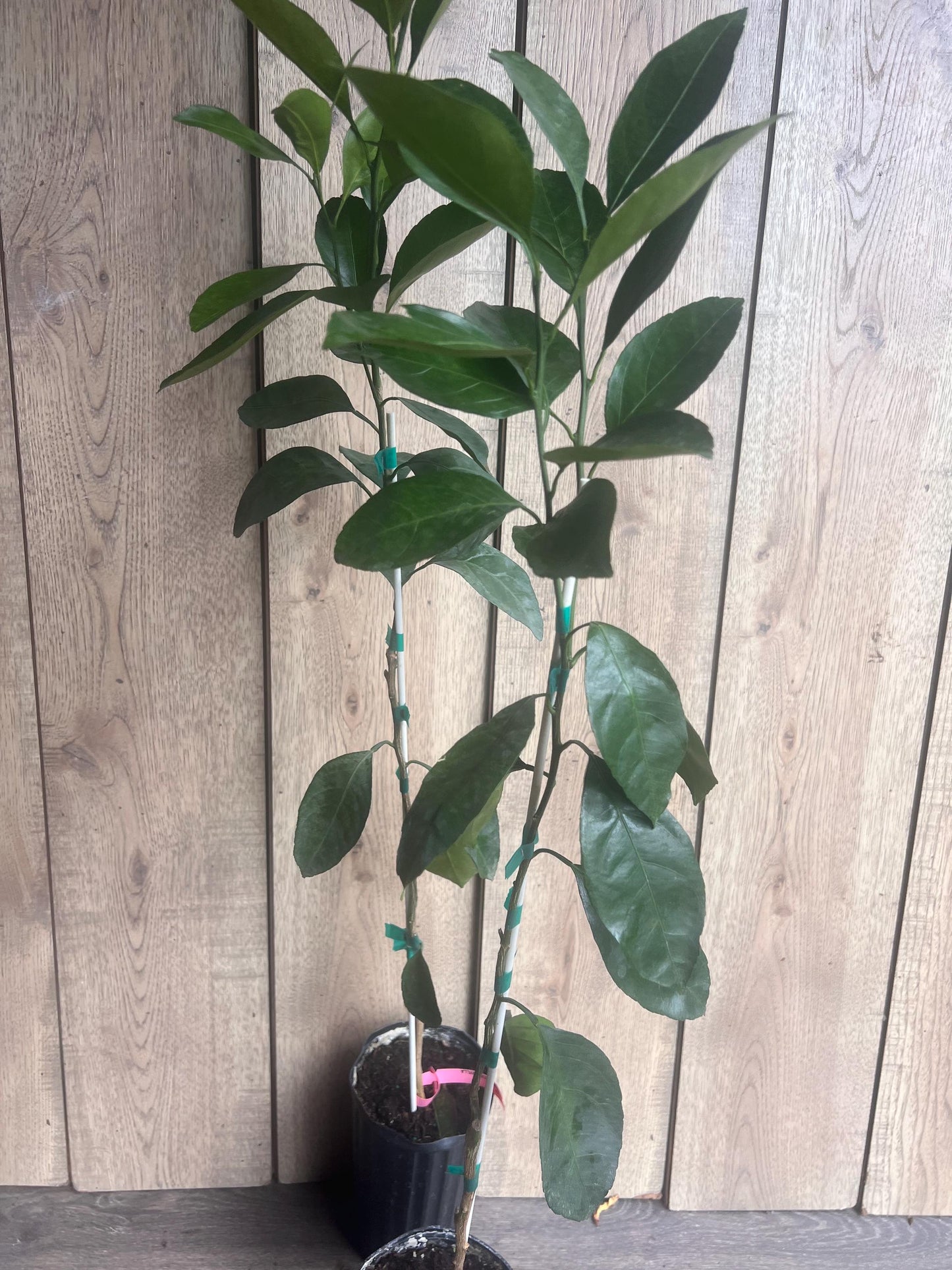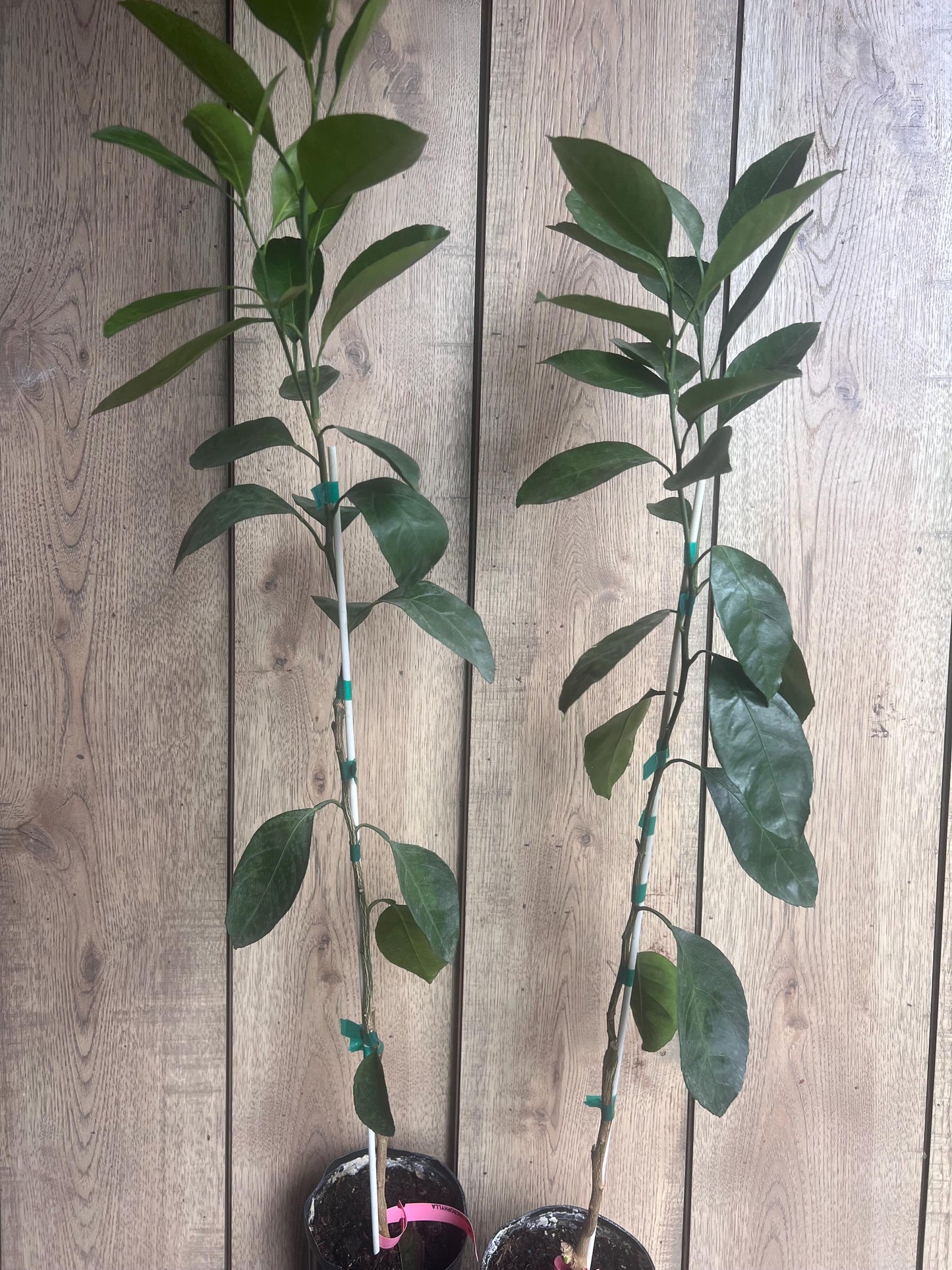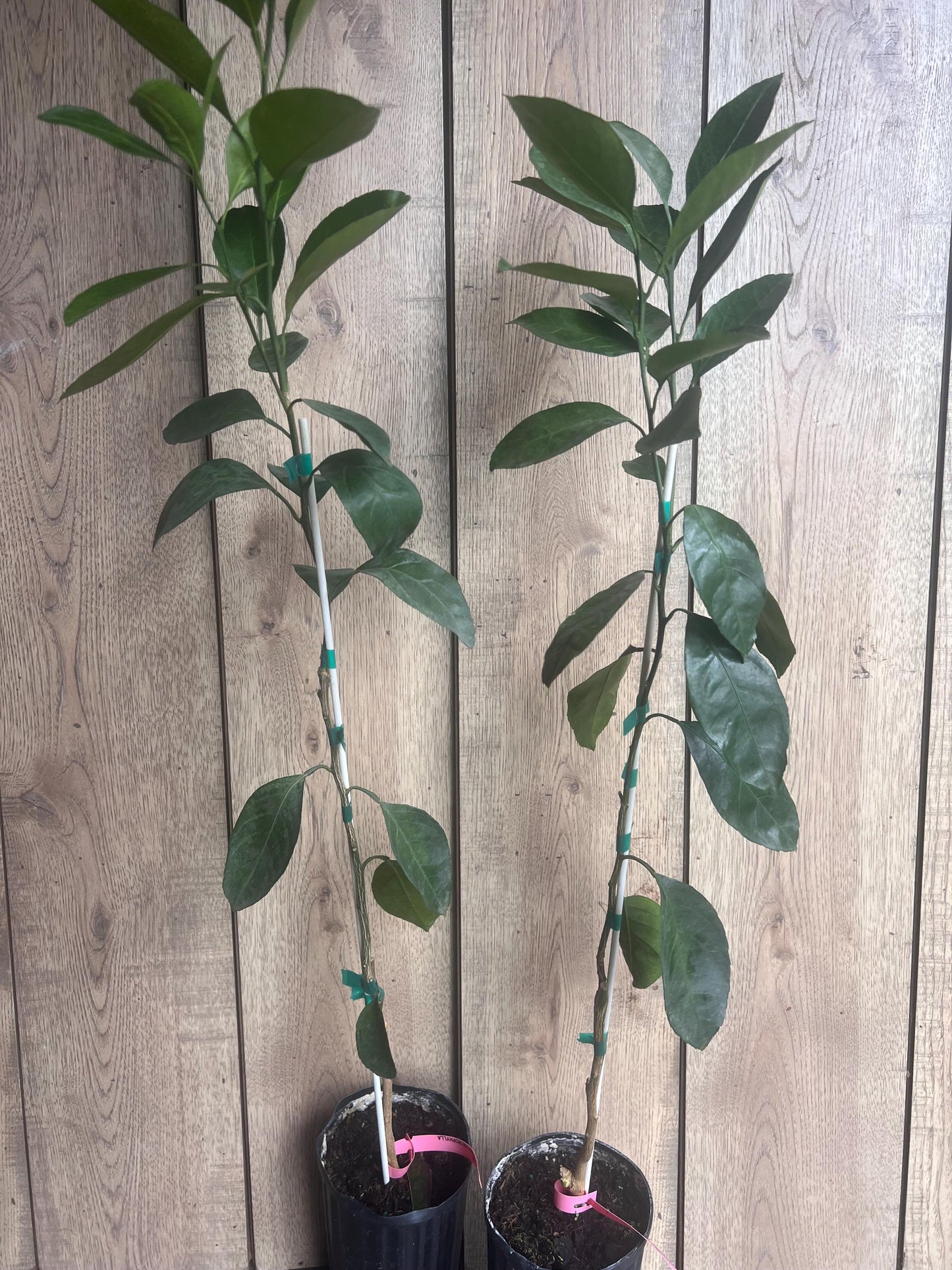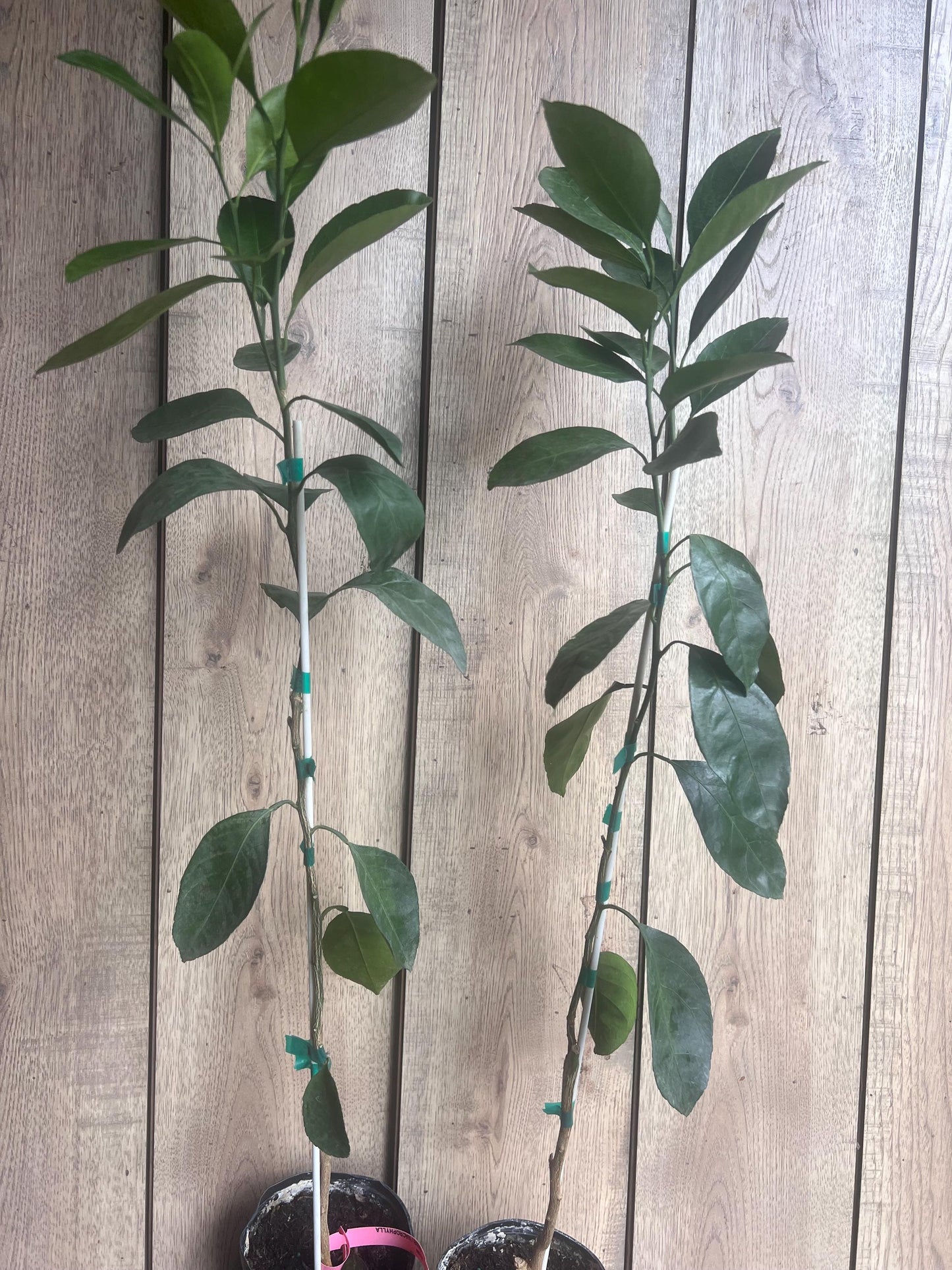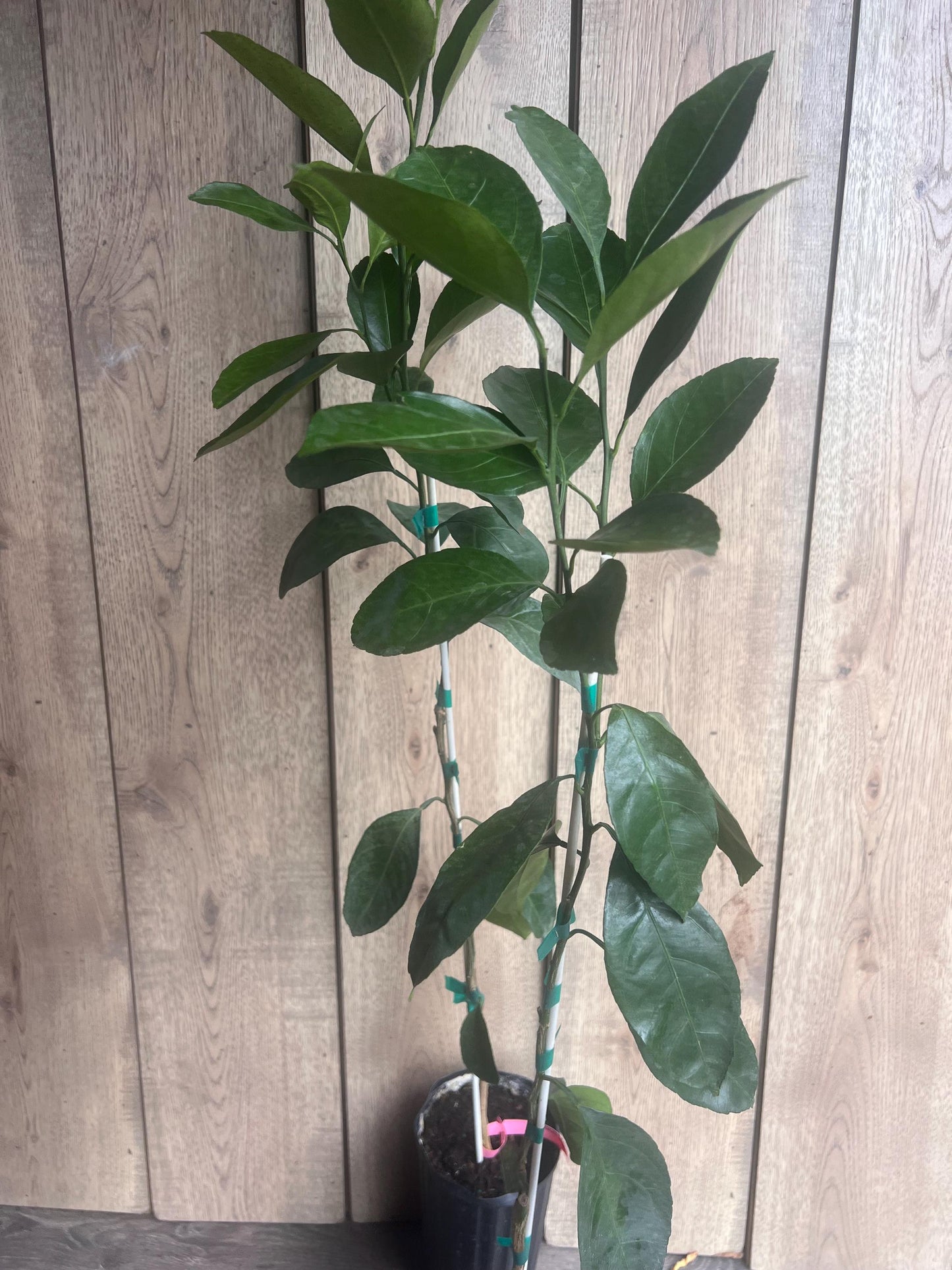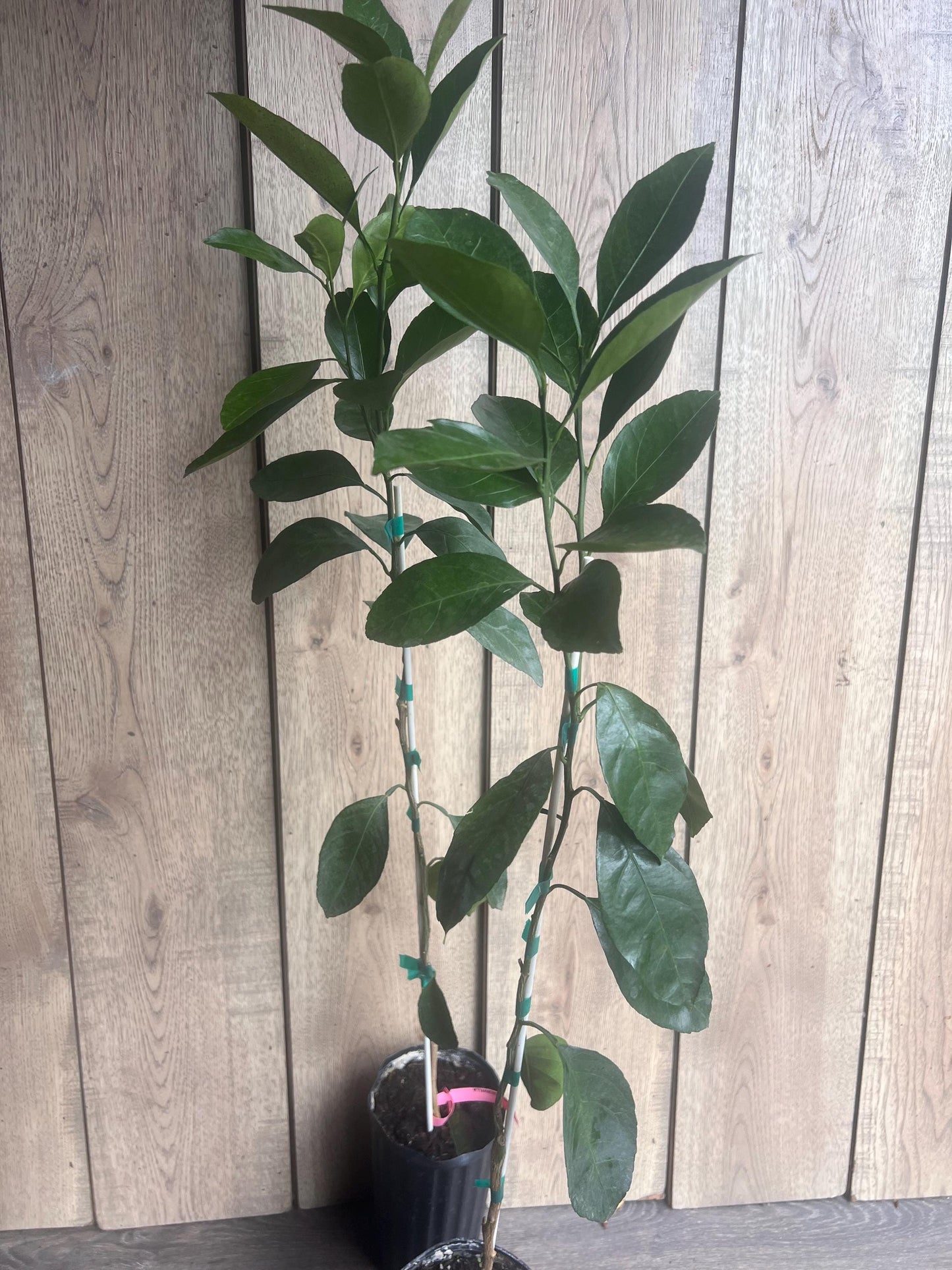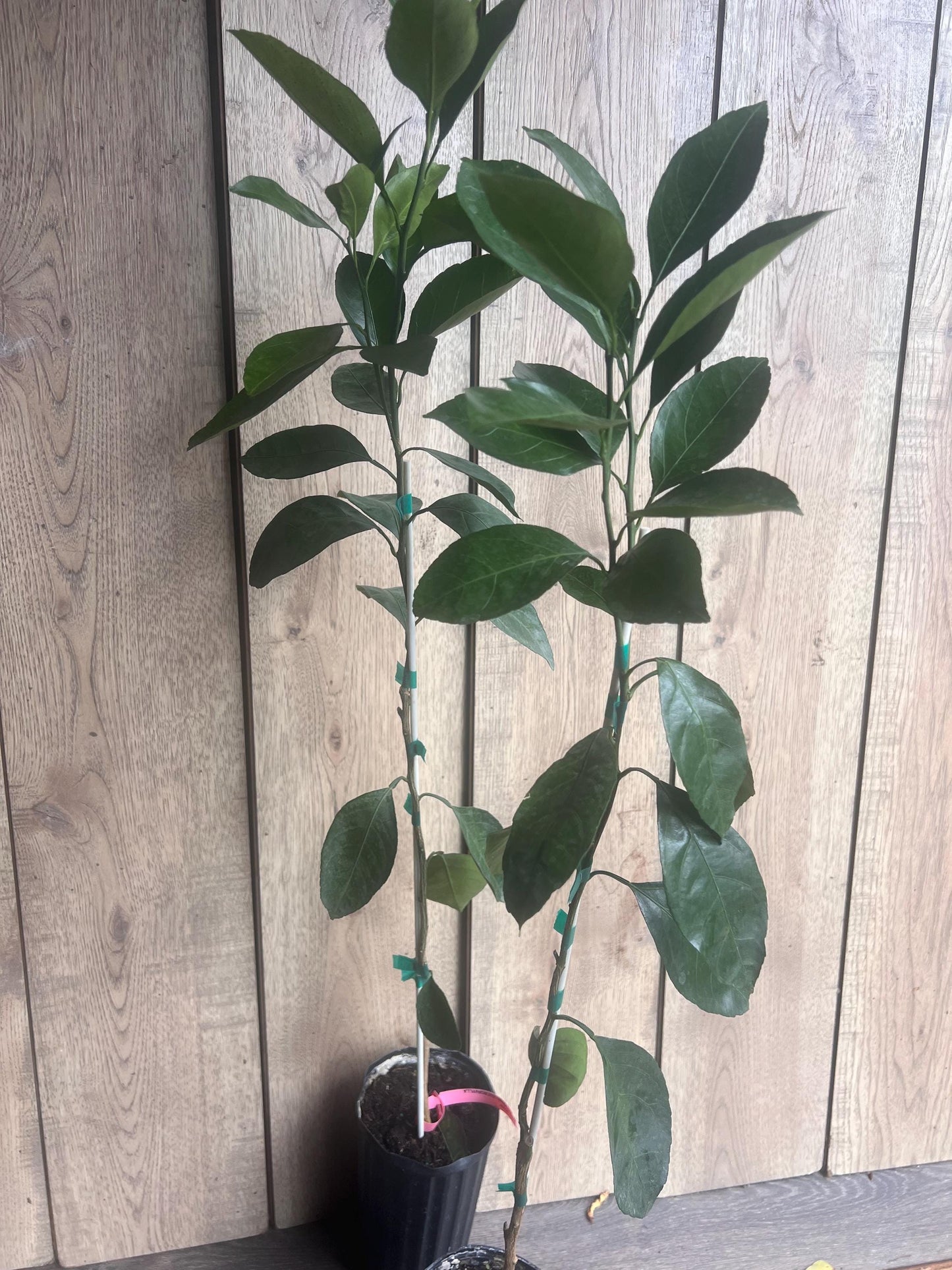Owari Tangerine Tree in half Gallon Pot, Grafted, Cold Hardy, Florida Shipping Only
Owari Tangerine Tree in half Gallon Pot, Grafted, Cold Hardy, Florida Shipping Only
Couldn't load pickup availability
Note: You will receive one Owari Tangerine Treem in 1/2 Gal pot similar to the pictures
Owari Tangerine (Citrus reticulata) is a popular seedless mandarin orange known for its easy-to-peel skin, sweet and tangy flavor, and vibrant orange color. With its juicy, tender flesh and low acidity, Owari tangerines are perfect for snacking or juicing. The tree itself is compact, making it ideal for home gardens, especially in subtropical and Mediterranean climates (USDA zones 9-11). Known for its long harvest season, Owari tangerines ripen in late fall to early winter, making them a sought-after citrus during the holidays.
Care Guide for Owari Tangerine
1. Light Requirements
- Full Sun: Owari tangerines need at least 8 hours of direct sunlight daily for optimal growth and fruiting. For container plants, place the tree in a sunny spot on your balcony or garden.
- Indoor Care: When growing indoors, place the tree near a south- or west-facing window to ensure it receives plenty of light.
2. Watering
- Consistent Moisture: Water deeply when the top 1-2 inches of soil feel dry. Keep the soil consistently moist but well-drained to avoid root rot.
- Avoid Overwatering: Ensure good drainage, especially when growing in containers. Water more frequently in hot or dry conditions.
3. Soil
- Well-Draining, Loamy Soil: Owari tangerines prefer slightly acidic to neutral soil (pH 6.0–7.0) that drains well. Use a loamy, well-aerated mix, or amend garden soil with organic matter.
- Container Planting: For pots, use a high-quality citrus or potting mix to promote drainage.
4. Temperature
- Warm Temperatures: Ideal temperatures are between 55°F and 85°F (13°C–29°C). Owari tangerines thrive in subtropical and Mediterranean climates.
- Cold Sensitivity: Protect trees from frost (below 28°F/-2°C) by bringing container-grown trees indoors or using frost cloth outdoors. In cold climates, growing in pots makes winter care easier.
5. Humidity
- Moderate to High Humidity: Tangerines prefer moderate to high humidity. If growing indoors in dry conditions, place the tree on a humidity tray or use a humidifier to maintain moisture.
6. Fertilizing
- Balanced Fertilizer: Use a slow-release, balanced citrus fertilizer or high-nitrogen fertilizer every 6-8 weeks during the growing season (spring to late summer).
- Reduce Fertilizing in Fall/Winter: Decrease or stop fertilization during the cooler months when growth slows.
7. Pruning
- Light Pruning: Prune to remove dead, diseased, or damaged branches and shape the tree. Pruning improves airflow, sunlight penetration, and fruit production.
- Control Size: For container-grown trees, prune to manage size and avoid overcrowding. Avoid heavy pruning, which may reduce fruiting.
8. Pollination
- Self-Pollinating: Owari tangerines are self-pollinating but will yield more fruit if multiple trees are nearby. Encourage pollinators like bees by planting flowering plants nearby.
9. Fruit Care
- Harvesting: Owari tangerines ripen in late fall to early winter. They turn bright orange and feel slightly soft when ripe. Gently twist or cut the fruit from the tree to avoid damaging branches.
- Storing Fruit: Store harvested fruit at room temperature for up to a week. For longer storage, refrigerate in a plastic bag for several weeks.
10. Pests and Diseases
- Pests: Common pests include aphids, spider mites, and scale insects. Treat infestations with insecticidal soap or neem oil.
- Diseases: Avoid overwatering to prevent root rot. Fungal diseases like citrus canker or powdery mildew can occur, especially in humid conditions. Prune and remove infected parts and use fungicides as needed.
11. Repotting
- Repotting Container Trees: If growing in a pot, repot every 2-3 years or when the tree outgrows its container. Choose a slightly larger pot (1-2 inches bigger in diameter) and refresh the soil with citrus-specific mix.
Summary
Owari tangerines are low-maintenance citrus trees that thrive in full sun, well-draining soil, and warm temperatures. They require consistent watering, balanced fertilizing, and light pruning to encourage healthy growth and fruit production. These trees are self-pollinating but will benefit from nearby pollinators. With proper care, Owari tangerines will produce sweet, juicy fruit for snacking, juicing, and preserving. Whether grown in the ground or a container, this compact tree makes a fantastic addition to gardens and homes, particularly in subtropical and Mediterranean climates.
Share
